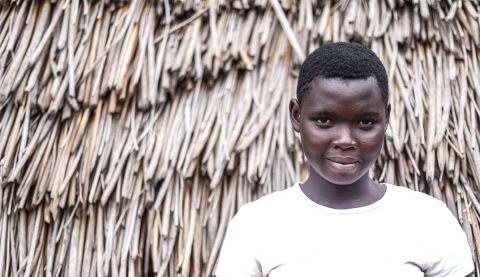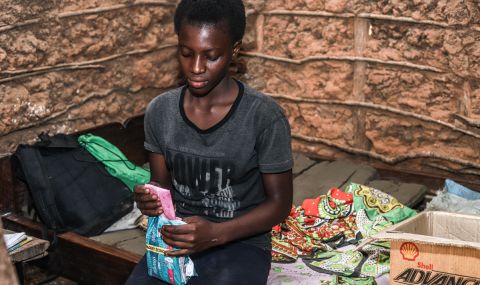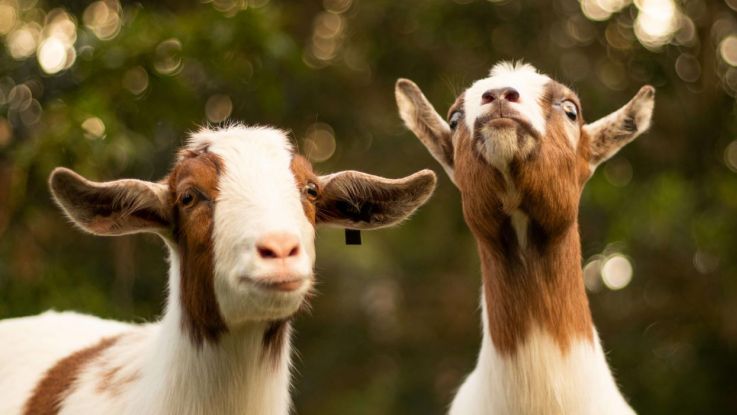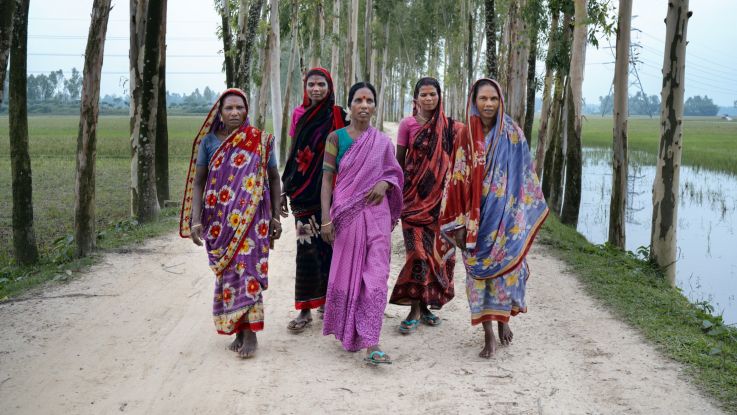Why donating period products can change girls' lives
6 December 2021
Your donation could help provide period products for girls so that they don’t miss out on school and the education that is their right.

Purity, 13, attends an ActionAid-supported catch-up centre in Kenya, where she is getting the education that is her right. Photo: Esther Sweeney/ActionAid
Around the world, millions of girls are out of school. Many will never set foot in a classroom; others will miss classes every month, or drop out entirely, when their periods start.
This is wrong. ActionAid believes that every girl has the right to go to school. Every girl has the power to transform her own future, and build a life free from poverty – if only she’s given the chance.
That’s why we’re asking for your help.
If you donate just £3 a month to our appeal, you could help provide a dignity kit for a girl, including period products, so she doesn’t have to miss school because of period poverty.
Period products help girls to stay in school
A lack of period products can have a huge impact on a girl’s life. Girls often have no access to period products - like sanitary pads, tampons or menstrual cups - or very limited access, forcing them to reuse the same products multiple times.
This can be compounded by a lack of safe, private toilets at school.
As a result, girls are often forced to stay home from school during their periods, or even drop out of school altogether.
Days, weeks, months and even years of education are lost due to period poverty: it's estimated that one in 10 girls in Africa will miss school when they have their periods.1
But when girls get a full education, they are able to change their own futures.
We know that increasing girls’ access to education is one of the most effective ways of making lasting change and improving the quality of life for women, girls and their communities in the world’s poorest countries.
The impact on the rest of girls' lives can be truly transformative.
When girls go to school, they’re less likely to marry early
When girls are educated, they are less likely to be forced into child marriage, or to marry early.
If all women had a secondary education, child deaths would be cut in half, saving three million lives.
Studies have shown that, across 18 of the 20 countries with the highest prevalence of child marriage, girls with no education are up to six times more likely to be married as children than girls with a secondary education.2
Increasing girls' education also reduces infant and maternal mortality. Educated mothers have fewer pregnancies, are less likely to give birth as teenagers, and are better able to access the maternal healthcare they need.
Overall, the impact of girls losing out on secondary education is huge: it’s estimated that if all women had a secondary education, child deaths would be cut in half, saving three million lives.3
Education helps girls break out of the cycle of poverty
Better educated women tend to be healthier, earn more income and, should they choose to become mothers themselves, their children are usually better-educated and healthier.
In fact, studies have shown that every year that a girl stays in secondary school correlates with an 18% increase in her future earnings.4
Not only this, but education helps give women the skills they need to take on leadership roles, including political positions. In those roles, they are much more likely to advocate for policies that benefit family and community life, like improved education and social services.
In short: education benefits entire communities as well as girls themselves.

Margaret, 15, from Kenya, opens a dignity kit she received from ActionAid. It includes period products and other essentials.
How your donation makes a difference
Supporting girls to go to school - and stay in school - can have enormous and far-reaching benefits all over the world. And period poverty is one of the key barriers holding girls back from getting the education that is their right.
But you can help. That's why we’re asking you to help invest in a girl’s education, and unlock her power.
A monthly donation of £3, over a year, could help provide a dignity kit for a girl, containing period products, soap and other essentials. This could make all the difference for a girl: enabling her to stay at school when she has period and get an all-important education.
Thank you very much for your support.
Footnotes
- 1http://unesdoc.unesco.org/images/0022/002267/226792e.pdf
- 2https://www.worldbank.org/content/dam/Worldbank/document/Gender/enGENDER%20IMPACT%20-%20Research%20Brief%20Early%20Marriage%2008.07.pdf
- 3http://en.unesco.org/gem-report/sites/gem-report/files/girls-factsheet-en.pdf
- 4https://blogs.worldbank.org/voices/build-brighter-future-invest-women-and-girls



